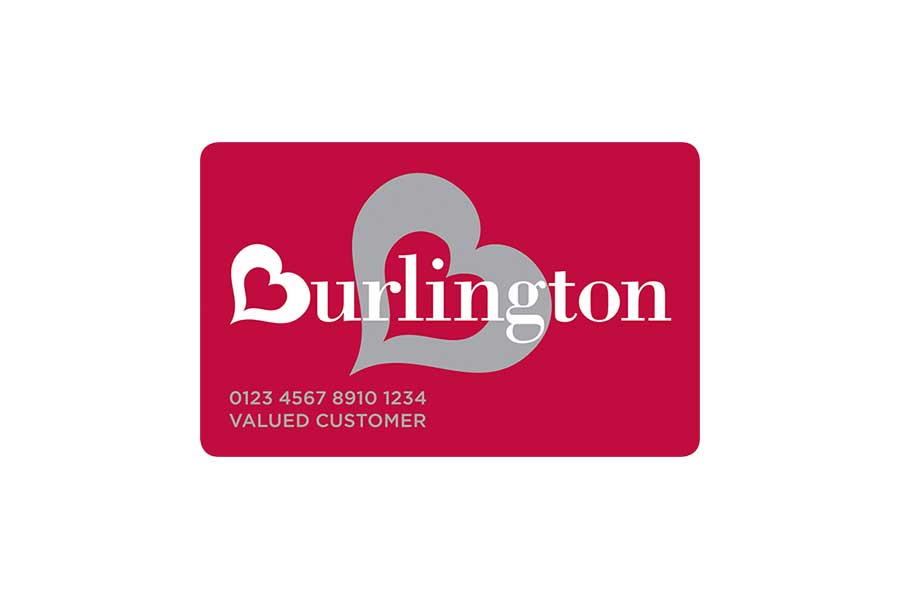Deciding how many credit cards to have isn’t always straightforward. It depends on your goals—whether you’re looking to boost your credit score, earn rewards, or build financial flexibility.
This article breaks down the benefits and challenges of owning multiple credit cards to help you make the best choice for your situation.

Why You Need At Least One Credit Card
Credit cards are more than just convenient payment tools. They play a critical role in your financial life. Here’s why having at least one credit card can make a difference:
Building Credit History
Using a credit card regularly and paying it off on time is one of the easiest ways to build a credit history. A strong credit history can help when applying for loans, renting an apartment, or even qualifying for better insurance rates.
A Safety Net for Emergencies
Unexpected expenses happen—whether it’s a car repair or a medical bill. A credit card gives you immediate access to funds when you need them most.
Enhanced Security
Credit cards offer stronger fraud protection compared to debit cards. If unauthorized charges occur, most credit card companies won’t hold you responsible as long as you report them promptly.
Rewards and Perks
From cash back to airline miles and travel points, many credit cards offer rewards programs. They may also include additional benefits like extended warranties, purchase protection, or travel insurance.
Convenience
Whether you’re shopping online, automating bill payments, or traveling abroad, credit cards are widely accepted and make transactions simpler.
How many credit cards is too many?
There’s no perfect number of credit cards, but understanding how they impact your credit scores and finances can help you decide.
Credit Utilization Matters
Credit utilization—the percentage of your available credit that you’re using—makes up 30% of your credit score. Keeping this below 30%, or ideally under 10%, is key to maintaining a strong score. Having multiple cards can help spread your spending and keep utilization low.
Too Few Credit Accounts Can Hurt
Lenders like to see a variety of credit accounts. If you have fewer than three accounts, it might label you as having a “slim file,” making it harder to achieve a high credit score or qualify for loans.
The Risks of Too Many Cards
Managing multiple cards can be tricky. Missing payments or carrying high credit card balances can damage your score. Plus, applying for too many credit accounts in a short period leads to hard inquiries, which can temporarily lower your score.
Advantages of Having Multiple Credit Cards
Using multiple credit cards strategically can offer several financial benefits. From maximizing rewards to improving your credit, here are some key advantages.
Diversifying Rewards and Benefits
With multiple credit cards, you can take advantage of various rewards programs. Some cards excel at earning cash back, while others offer travel points or perks like airport lounge access and travel insurance. Strategically using each card for specific spending categories can amplify your rewards.
Boosting Credit Utilization Ratio
Your credit utilization ratio plays a significant role in your credit score. By spreading spending across multiple cards, you can lower your utilization percentage, which helps maintain or even improve your score—just avoid maxing out any individual card.
Backup in Case of Issues or Fraud
Having a backup card can provide peace of mind. If one card is compromised or declined while traveling, an additional card ensures you’re never left without a payment option.
Disadvantages of Having Multiple Credit Cards
While multiple credit cards offer advantages, they also come with potential downsides that can impact your finances and credit health.
Potential for Increased Debt
More credit cards mean higher credit limits, which might tempt you to overspend. If you don’t pay off credit card balances in full, interest charges can accumulate, leading to unmanageable debt.
Complexity in Management
Juggling multiple cards requires keeping track of payment due dates, interest rates, and fees. Missing a payment can drop your credit score and result in costly late fees.
Impact on Credit Scores
Opening too many cards in a short period can trigger several hard inquiries on your credit report, temporarily lowering your score. Additionally, having many new accounts reduces the average age of your credit accounts, which is another key factor in credit scoring.
Addressing Common Credit Card Myths
There’s a lot of misinformation about credit cards, and it’s important to separate fact from fiction. Here are two common myths and the truth behind them:
Myth: Having Too Many Credit Cards Always Hurts Your Credit Score
Reality: The number of credit cards you have doesn’t directly harm your credit score. What matters more is how you use them. Factors like your credit utilization ratio, payment history, and the average age of your accounts play a bigger role. In fact, having multiple cards can help you maintain a low utilization ratio, which positively affects your score.
Myth: You Should Close Old Accounts to Simplify Management
Reality: Closing old credit card accounts can sometimes hurt your credit score. Older accounts contribute to the average age of your credit history, which makes up 15% of your FICO score. Instead of closing them, consider keeping these accounts open and unused unless they carry high fees or no longer serve a purpose.
Factors to Consider Before Applying for Another Credit Card
Adding a new credit card to your wallet isn’t a decision to take lightly. It’s important to evaluate your financial habits and goals to determine if it’s the right move for you.
Spending Habits
Think about how you manage your money now. If you’re likely to overspend or struggle to pay off your balance each month, adding another card could make things worse. On the other hand, if you’re confident in your ability to use credit responsibly, a new card can offer additional perks and flexibility.
Financial Responsibility
Managing multiple cards takes discipline. You’ll need to keep track of payment due dates and balances to avoid late fees and credit score damage. Staying organized and ensuring payments are made on time is key to maintaining your financial health.
Balances on Existing Cards
If you already have high balances, focus on paying them down before applying for a new card. Carrying high balances not only impacts your credit, but also signals to lenders that you may be overextended.
Timing of Applications
Avoid applying for multiple credit cards at once. Each application triggers a hard inquiry on your credit report, which can temporarily lower your score. Lenders may also see frequent applications as a red flag. Instead, space out applications and choose cards that match your financial needs.
How to Effectively Manage Multiple Credit Cards
Owning multiple credit cards can work to your advantage if managed properly. Here are ways to stay organized and avoid common pitfalls.
Use Tools and Apps
Budgeting apps can help you keep track of due dates, interest rates, and balances. Apps like Monarch simplify managing multiple cards and ensure you’re staying on top of your credit health.
Set Up Automatic Payments
Automating your payments can reduce the risk of late fees and missed payments. This ensures your bills are paid on time, helping you build and maintain strong credit.
Regularly Reviewing Credit Card Statements
Take time each month to review your statements. This helps you spot unauthorized charges, monitor your spending, and identify areas where you could save money or consolidate debt.
Periodically Assessing Your Credit Card Portfolio
Your financial needs evolve, so regularly evaluate whether your cards still suit your lifestyle. If a card has high fees and low usage, consider downgrading or closing it. Just be cautious—closing older accounts or those with high credit limits can impact your credit by affecting your utilization rate and account age.
Conclusion
Deciding how many credit cards to have depends on your financial goals and habits. Whether you stick to one card or manage several, the key is to use credit responsibly. If you’re new to credit, starting with one card is a smart way to build a strong foundation by using it regularly and paying it off on time. As you gain experience, keeping your credit utilization low—ideally under 30% or even 10%—can help maintain a strong credit score.
It’s also important to apply for new cards strategically, focusing on options that align with your financial needs, like rewards programs or lower interest rates. Avoid applying for multiple cards in a short period, as this can temporarily lower your score and signal risk to lenders.
Ultimately, credit cards are tools that work best when managed thoughtfully. Regularly reviewing your credit card accounts, monitoring your credit report, and prioritizing timely payments will help you maintain financial health. The number of cards you hold is less important than how you use them to support your financial goals.
Frequently Asked Questions
How many credit cards should I have as a beginner?
Start with one credit card to build your credit and learn how to manage payments responsibly. Once you’ve established good habits, you can consider adding another card for rewards or increased credit flexibility.
Can I have too many credit cards?
There’s no universal limit on how many credit cards are “too many.” However, applying for too many cards in a short time can hurt your credit score, and managing multiple accounts can be overwhelming if payments are missed.
Is it bad to apply for multiple credit cards at once?
Yes, applying for several credit cards in a short period triggers multiple hard inquiries on your credit report, which can temporarily lower your credit score. Lenders might also see this as risky behavior.
Should I close a credit card I don’t use?
If the card has no annual fee, keeping it open is usually better for your credit score. Closing accounts can reduce your available credit and affect the average age of your accounts. However, if it’s costing you or tempting you to overspend, consider closing it.
Does having multiple credit cards improve my credit score?
It can, as long as you manage them responsibly. Having multiple cards increases your total credit limit, which can help lower your credit utilization ratio—a key factor in your credit score.
What should I do if I miss a payment on one of my cards?
Make the payment as soon as possible to minimize damage. Contact your issuer to explain the situation, as they might waive late fees if it’s your first offense. Set up automatic payments to prevent future issues.
Is it better to pay off one card at a time or all cards at once?
If you’re carrying balances, consider the debt snowball (paying off the smallest balance first) or debt avalanche (paying off the highest-interest card first) method. Paying more than the minimum on all cards helps reduce interest charges.
See also: Debt Snowball vs. Debt Avalanche: Which Method Works Best?




